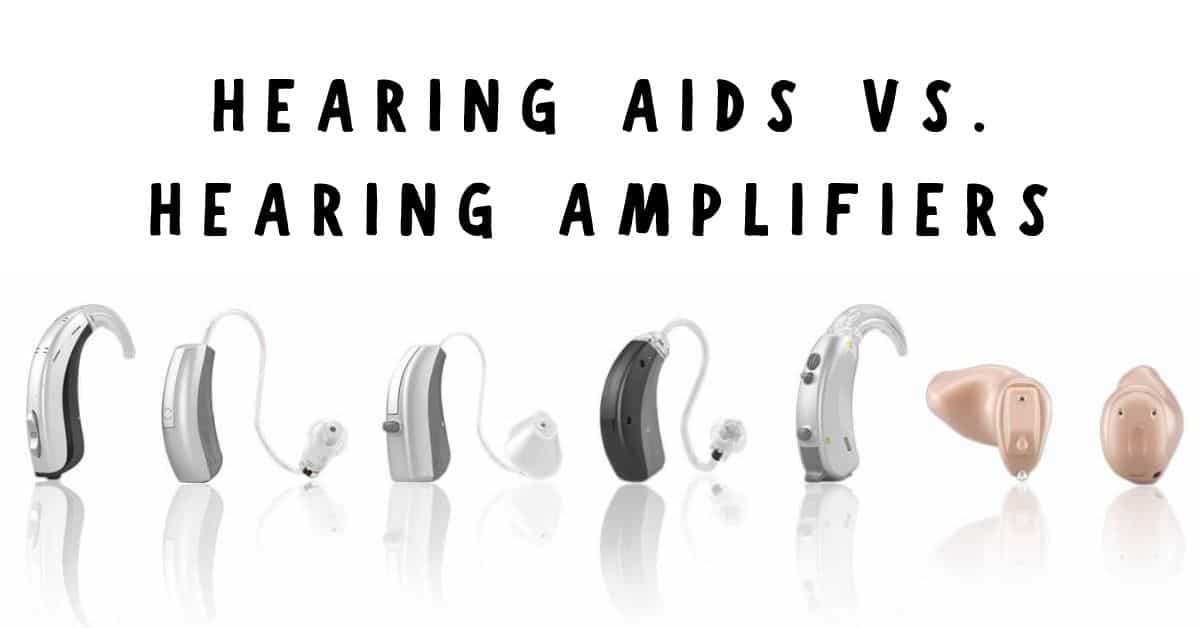
Wondering if you should invest in hearing aids? You might have a friend using a hearing amplifier, and it seems to work well for them. They’re a cheaper option, and you may think you’ve found an easy solution to your hearing loss. While hearing amplifiers do serve a specific function, they’re not recommended for those with hearing loss! Before you make your decision on what technology to buy, take a moment to learn about the differences between hearing aids and hearing amplifiers and learn more about your hearing health.
Understanding Hearing Loss
If you’ve been struggling to hear, and want to do the right thing for your hearing health by treating your hearing loss, understanding your hearing loss will help you decide what kind of treatment you need. The most common kind of hearing loss is sensorineural hearing loss, and this kind of hearing loss targets certain frequencies. You might struggle to hear high pitched sounds, or strain to hear important speech sounds in a place with a lot of background noise. This hearing loss is caused by exposure to noise, as well as by part of the natural aging process. Simple amplification of sounds won’t help you hear, since your hearing loss isn’t just affecting the volume of the sounds around you, but affecting which sounds you can hear.
Hearing Amplifiers
You may have seen a recent add for hearing amplifiers that made them sound like a dream come true. But before you let the low price-tag and big promises get you hooked, understand what a hearing amplifier can and can’t do for you. Personal hearing amplifiers work to boost the volume of the sounds around you. They amplify all sounds in your environment, and don’t discriminate between sounds you’re straining to hear, and distracting background noise. This can help you if you’re straining to hear bird sounds, or want to increase the sound of a movie or theatre production. They serve useful purpose in certain situations, but shouldn’t be used as an over the counter hearing aid. In fact, hearing amplifiers were designed for those with a full range of hearing, not those struggling with hearing loss.
Using a hearing amplifier when what you really need is a hearing aid could actually lead to further damage to your ears along with hearing loss, since you’ll keep turning up the volume in an attempt to hear the sounds around you. You could experience noise induced hearing loss from your hearing amplifier, and they could be causing a lot more harm than good. The FDA has warned not to use a hearing amplifier as a replacement for hearing aids, and to make sure you’re using the right treatment method for your situation.
Before you buy a hearing amplifier, ask yourself what you want it for. Are you going to the theatre, or want to hear the sounds of your children playing in the next room? These are great reasons to get a hearing amplifier, but if you have hearing loss you need to consider hearing aids.
Hearing Aids
Hearing aids are designed to help those with hearing loss hear clearly. They don’t amplify all the sounds around you, but complex programs and features scan the environment, help you focus on speech sounds, and reduce background noise. They also help you hear clearly by working to improve hearing in high frequencies, and other sounds you struggle to hear, as well as improving speech clarity. They are customized to your unique hearing loss and lifestyle, so that you’ll have clear hearing throughout your day.
Testing Your Hearing
Are you worried about your hearing health? Before you buy a hearing amplifier or a hearing aid, visit us at My Hearing Centers for a hearing test. You’ll discover your unique hearing profile, and the audiogram will show you what sounds you can and can’t hear. Don’t amplify all the sounds around you, or risk further damaging your hearing, but take the time to get the help you need. A quality pair of hearing devices can give you back your hearing, and help you hear conversations, even in places with a lot of background noise. You’ll be amazed at the difference the proper treatment can make, and you’ll be able to enjoy clear hearing all day every day.
